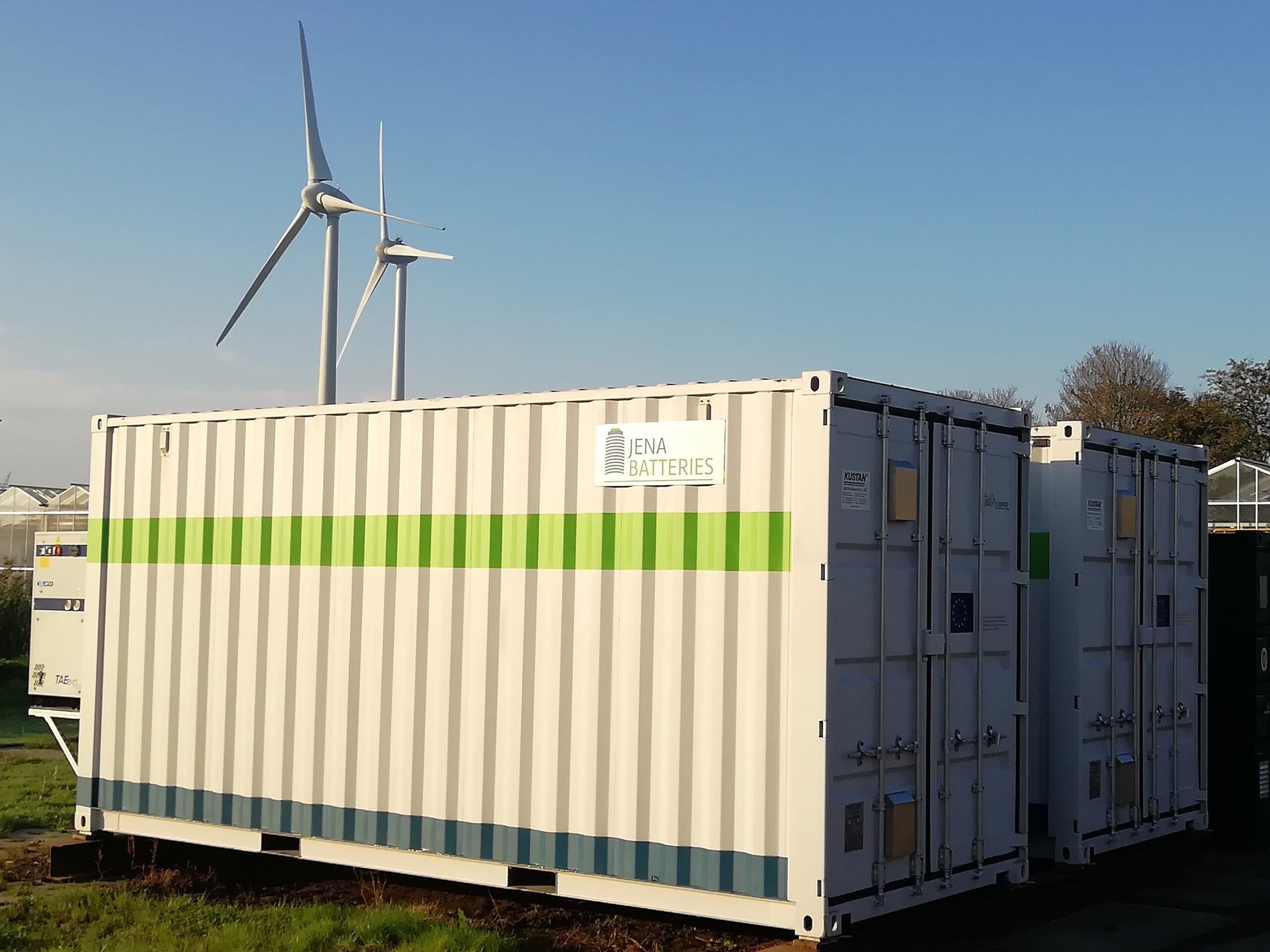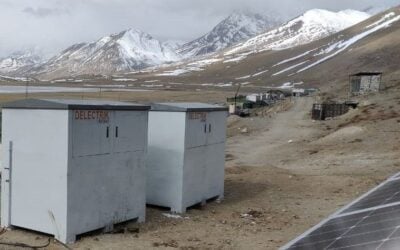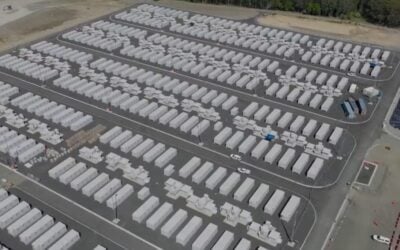
Multinational chemicals company BASF has furthered its interest in the energy storage industry, partnering on the development of ‘metal-free’ flow battery electrolytes with German startup JenaBatteries.
BASF announced the partnership towards the end of last week. JenaBatteries’ website claims the startup has made available a scalable redox flow battery for energy storage which goes from 100kW to 2MW power and 400kWh to 10MWh capacity ratings based on a saline solution, in which different organic storage materials form the anode and cathode.
With the new partnership, BASF said it will make available its amine (ammonia-based compounds) for forming one of two electrolytes for a “battery technology that is particularly suitable for stationary storage of electricity from renewable energy sources and for stabilising conventional transmission grids”. BASF produces the amine chemical intermediate on an industrial scale.
The potential advantages – and challenges – of redox flow batteries have long been discussed, while many players have been working to commercialise the potential using a variety of technologies and electrolyte solutions. A recent technical paper contributed to this site via the quarterly journal PV Tech Power (Vol.21) from academic collaboration project CENELEST investigates these in some detail (available to read on the site or to download as part of the journal, from the PV Tech Store, here).
Try Premium for just $1
- Full premium access for the first month at only $1
- Converts to an annual rate after 30 days unless cancelled
- Cancel anytime during the trial period
Premium Benefits
- Expert industry analysis and interviews
- Digital access to PV Tech Power journal
- Exclusive event discounts
Or get the full Premium subscription right away
Or continue reading this article for free
“JenaBatteries is a start-up that supports the use of renewable energies with its solutions and therefore fits perfectly with our sustainability strategy. For BASF, the cooperation offers a new, attractive and future-oriented field of application for our amine chemistry,” Dr Oliver Cullmann, VP at the Special Amines Europe unit of BASF’s Intermediates division said.
JenaBatteries, headquartered in Jena, Thuringia, Germany, will not be the only battery player in that part of Germany by any means – for instance, recently-announced Tesla partner, China’s Contemporary Amperex Technology (CATL), said last year that it will be building its first European factory making EV batteries in the German state.
‘BASF wants to become a player in this energy storage market’
For the multinational, it is the latest in a series of involvements in the stationary storage industry understood to be part of a wider play of involvement in the advanced energy industry. A BASF representative told Energy-Storage.news yesterday that the chemicals company is accustomed to working on “different levels of the value chain”.
As such, BASF is already involved in supplying cathode materials for lithium-ion battery manufacture, as a raw materials supplier to the redox flow battery space, and as systems supplier to the manufacture of sodium sulfur (NaS) batteries. Furthermore, as reported by Energy-Storage.news back in June 2019, BASF is also now sales partner to Japan’s NGK Insulators, currently the only manufacturer in the world of the NaS battery. The company is “always looking for ways to support BASF’s growth”, the BASF spokesperson told Energy-Storage.news.
“One of those is the stationary energy storage market, especially as it supports a broader adoption of renewable energies and thus contributes to one of the key strategic pillars of BASF: sustainability,” the representative said.
“BASF wants to become a player in this energy storage market – although different technologies are currently used for different applications. Therefore, BASF is currently pursuing different approaches and technologies for the variety of use cases”.
The company is already active in a wide number of relevant fields via its ‘Energy & Resources’ divisions, including gas treatment, oilfield chemicals and mining as well as photovoltaics solutions and chemicals to increase efficiency of solar and solar thermal plants.
The company was also confirmed as a recipient of a slice of funding worth €3.2 billion (US$3.5 billion) approved by the European Commission in December 2019, aimed at fostering a sustainable battery ‘eco-system’ that will be pan-European, designated as IPCEI – Important Project of Common European Interest, a status conferred to research schemes seen as key in the EU.
JenaBatteries will market the jointly-produced flow batteries, expecting to begin doing so during this year.
“The industrial production of the electrolyte on a large scale at BASF enables us to provide our customers with electricity storage technology that is cost-effective compared with our competitors,” JenaBatteries managing director Dr Olaf Conrad said.
“We are pleased to have won BASF as an experienced partner for one of the two electrolytes in our batteries. The globally active company has the know-how, the necessary resources and last but not least a special understanding of JenaBatteries’ technology.”
Regular readers of this site may be aware that BASF has invested in another company, US-based ESS Inc, which is currently the only producer of a flow battery that uses an “all-iron electrolyte” that claims to be less toxic than the more commonly used vanadium that many other players in the space are hedging their bets on.
BASF has also contracted ESS Inc to deliver some projects based on that technology to its own operations. The BASF representative pointed out to Energy-Storage.news however that this investment and partnership has been through BASF Venture Capital GmbH, essentially a separate business division of the parent company. Softbank Group’s SB Energy is also an investor in ESS Inc.
You can also download “Redox flow batteries for renewable energy storage,” the CENELEST paper, from the ‘Resources’ section of this site as a standalone PDF.





